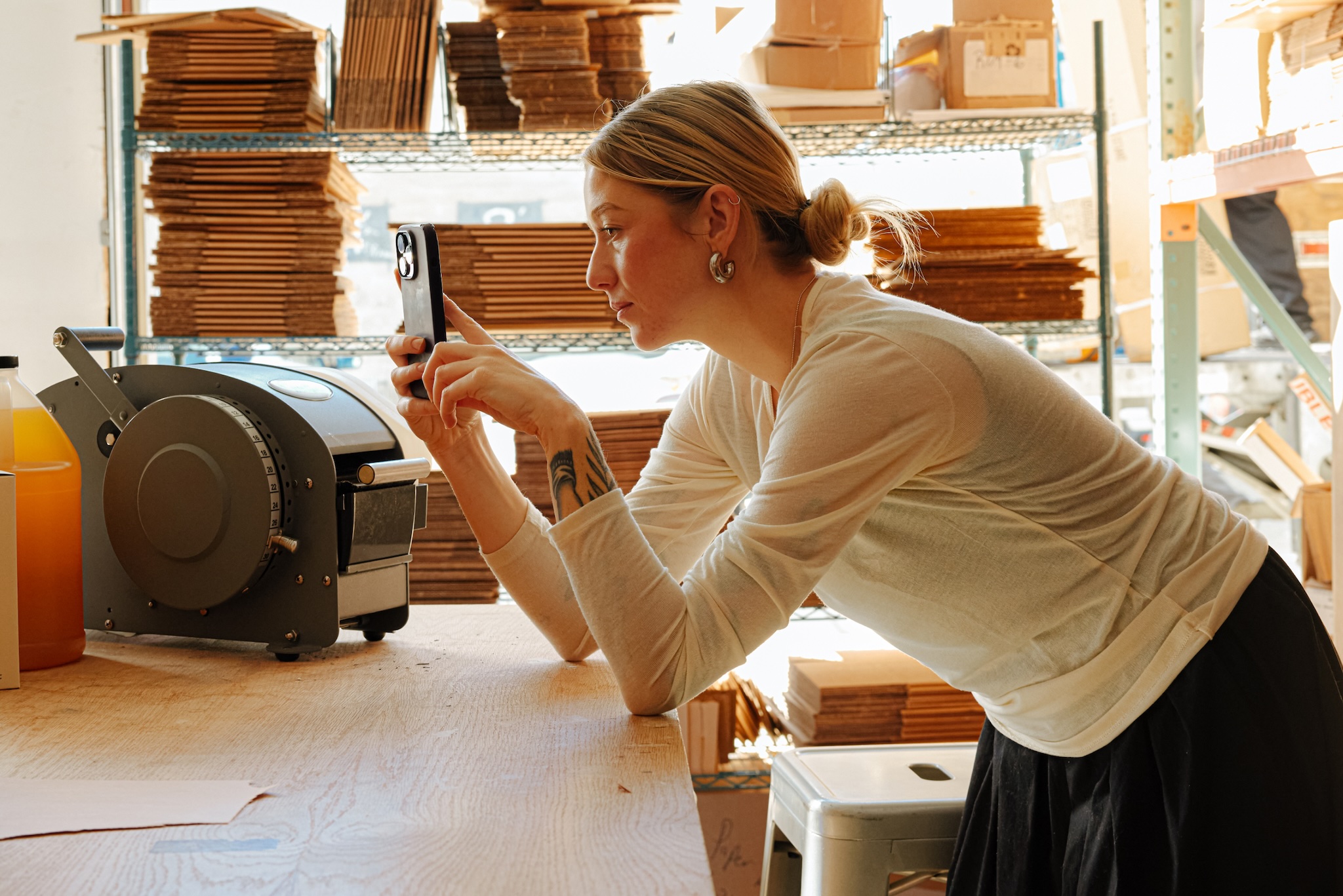

Brand values underpin every touchpoint of the customer journey, from social media posts to design and packaging to customer support. These values are the core beliefs that your company stands for—and customers care deeply about them.
A recent Harris Poll found that 82% of consumers want a brand’s values to align with their own, and more conversations are taking place about things like equity and sustainability than ever before. “Consumers have really woken up in the last few years, and they’re putting their dollar where their values are,” says retail strategy coach Kristin Fisher. “I think that that’s a trend that is here to stay. It’s really important as small businesses—whether you’re a brand, a maker, or a retailer—to be really clear on your brand values and how you assort or design into those.”
Briana Martini, e-commerce specialist for Emmy’s Organics, and Jeanne Ryan, vice president of marketing at Spiceology, recently joined us at a community panel to discuss brand values and how to define them for your company. They both have a keen understanding of the importance of brand values because they’ve helped develop them for their respective companies. Emmy’s Organics is dedicated to creating gluten-free, vegan, organic treats that are decadent and delicious, while Spiceology offers innovative, versatile, premium spice blends in single jars and gift sets designed for home cooks.
We’ve carved out three essential pieces of advice from their discussion to help you better define your own set of brand values.
1. Develop a brand platform
Every brand should have a platform that is clear to customers. Jeanne, a former ad agency brand driver, defines the brand platform as a combination of vision, mission, and values. “The vision is the big picture,” she says. “What do you want to actually accomplish? What would be the ultimate success?” The mission, on the other hand, is the set of internal processes for achieving that big picture, while the values are the rules you play by. All of these can change over time too. “They are living and breathing things,” Jeanne says.
In terms of vision, Spiceology developed a “fresh matters” ethos early on. “We grind our products fresh, and we ship them fresh. That’s a big differentiator for us,” Jeanne says. “It’s also the way we approach product innovation—we’re a little rebellious, we’re creators, we’re innovators, we do really interesting things, and that’s what we’re known for.” While their mission might evolve over time, Jeanne says chefs are at the core and that remains a constant.
The team at Emmy’s developed one of their core values organically when they found themselves becoming a destination workplace for refugees. “All of our production staff are refugees from Myanmar, and many of them have worked for us for five or more years,” says Briana. As positions opened up, employees started recommending friends and family to join the team, so in response, Emmy’s started looking at ways to make the workplace more attractive, safe, successful, and fulfilling for these employees. Now this ethos is part of their brand platform.
Jeanne says it’s important to set aside time and be diligent when developing your brand platform. “If you’re not ready to get an agency partner to come in and help you with that, you can absolutely facilitate and lead brand discussions yourselves,” she says. She also recommends putting the consumer at the table at every point and considering how you’re going to distill your vision, mission, and values to your target audience.
2. Remember workplace culture and teamwork
Both Briana and Jeanne stress the importance of nurturing an internal workplace culture that embodies your values from within. “When I think about brand values, I really think about workplace culture,” Briana says. “With that, I would say Emmy’s strength is our sense of team—our focus on each contributor’s strengths and figuring out how to work with individual employees to help actualize their strengths.” She adds that brand values should not come out of a vacuum, but should reflect your workplace culture and lay on the strengths of what you’re already doing.
A core value can be seen as something that drives your internal culture as well.
Jeanne Ryan, vice president of marketing at Spiceology
Briana also stresses the importance of communication and teamwork. For example, when the Emmy’s team realized they were becoming a destination workplace for refugees, they translated print materials and hired an on-site verbal translator. “We really slow down and take our time and make sure communication is happening effectively in both directions,” she says. “If you create that healthy, challenging, adaptable, and fun workplace for your team, you then get to focus on things like marketing and sales, innovation, and sourcing, instead of [employee] retention and turnover.”
It’s also beneficial to your bottom line to create a culture for your employees that makes consumers feel good about purchasing your products. According to Jeanne, “a core value can be seen as something that drives your internal culture as well.”
3. Above all, be authentic
Briana and Jeanne both believe authenticity is a key facet of a strong brand. “The only way people can connect with you is if you are authentic,” says Briana. This means understanding who and what you are, so you can deliver that to employees and customers, and seeing every communication as an opportunity to show who you are and what you stand for.
“Remember, a logo’s not a brand,” Jeanne says. “A brand is the feeling that you get from a company.” Whether you want your brand to be known for being quirky or witty, supporting a cause, or having any other public persona, she says you have to communicate that consistently to your target audience.
When it comes to walking the walk, Jeanne cites sustainability as a great example. “If you say you are a sustainable company, you better be a sustainable company because you’re putting that out there in the world to people who actually care about that,” Jeanne says.
Briana echoes this sentiment. “Just being yourself and being a real human, especially on social media, is what consumers really connect with today.”




